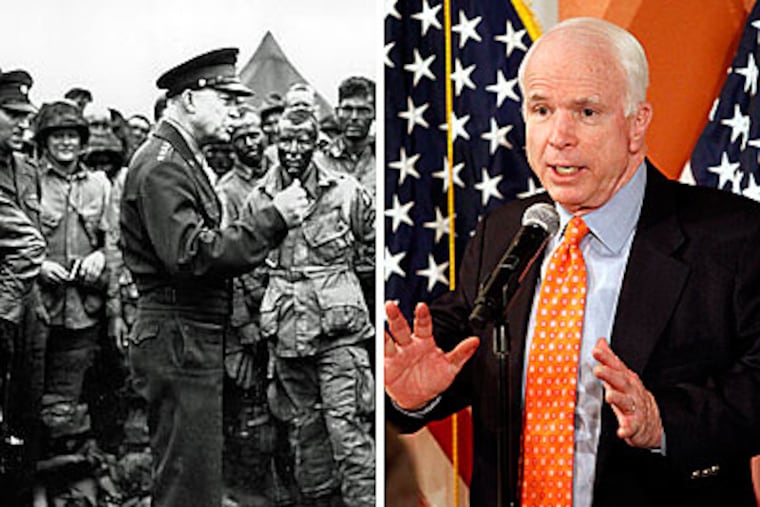Editorial: Taking on the F-22 gang
President Dwight D. Eisenhower famously warned in his 1961 farewell address of the dangers of undue influence on government by the military-industrial complex.

President Dwight D. Eisenhower famously warned in his 1961 farewell address of the dangers of undue influence on government by the military-industrial complex.
This week, Sen. John McCain (R., Ariz.) referenced Ike's words in praising the Senate's bipartisan, 58-40 vote to strip $1.74 billion for seven more F-22 jet fighters from the budget.
The saving isn't that substantial in the scheme of things, but McCain said the vote was a test of whether we could prevail over the "military-industrial-congressional complex."
Unlike the Senate, the House voted to fund the plane, so the final outcome will be decided by a conference committee. President Obama has said he will veto military authorization legislation if it includes funding for the plane.
The Senate vote was a test of something bigger than the F-22. The main issue: Can Congress bring itself to eliminate a weapons system that even the defense secretary says isn't needed?
The answer is obvious to anyone, except to a member of Congress whose military jobs in his district are at stake. The F-22, for all its technical wizardry, is a Cold War relic. Two very different presidents - George W. Bush and Barack Obama - thought production should be canceled.
So does Defense Secretary Robert Gates, who explained why the issue matters. "We need to fundamentally reshape the priorities of America's defense establishment and reform the way the Pentagon does business - in particular the weapons we buy and how we buy them," he said. "Above all, to prepare to wage future wars, rather than continuing the habit of rearming for previous ones."
Foreign armies have learned not to challenge America head- on; asymmetric wars such as in Iraq and Afghanistan are the fights of the future, for which different weapons systems and technologies are needed.
As for future combat aircraft, Gates says the F-35 Joint Strike Fighter is better designed than the F-22 and costs half as much.
Why then do legislators from both sides of the aisle cling to the F-22 Raptor? Because military projects such as this, whose suppliers are spread out over many states, have become job banks.
This is a luxury the country can no longer afford.
"We simply cannot risk continuing down the same path," Gates said, with weapons priorities "increasingly divorced from the very real threats of today. The time has come to draw a line and take a stand against the business-as-usual approach to national defense."
"If not now, when?" Gates demanded. Amen.